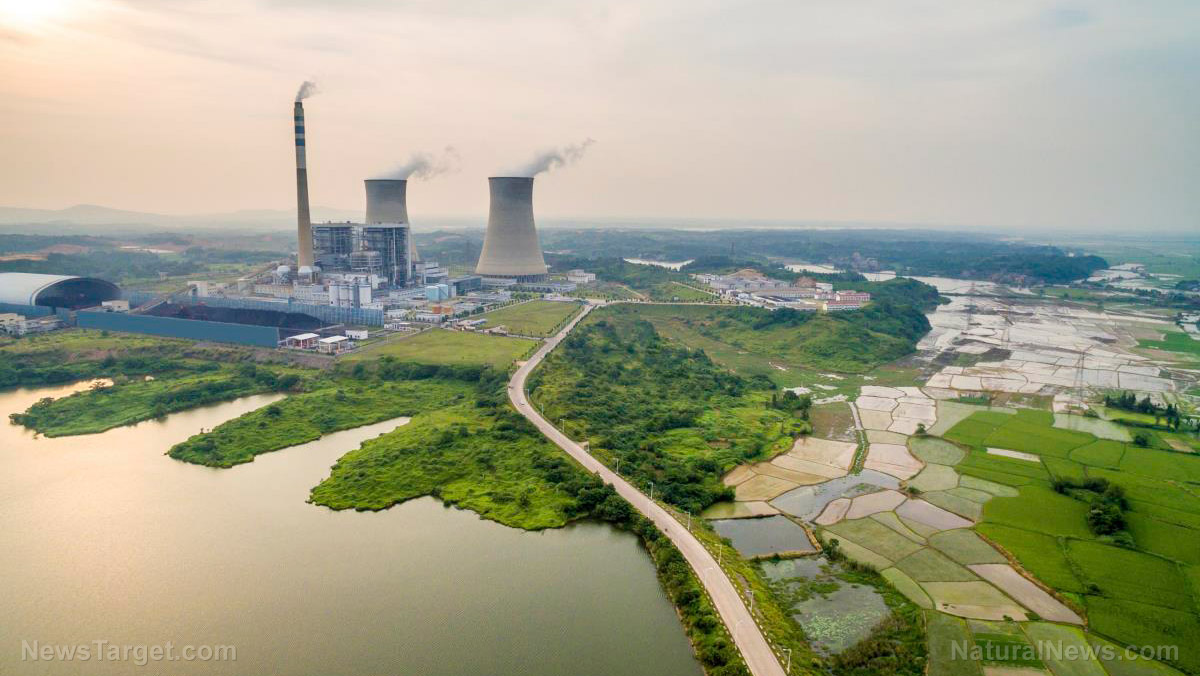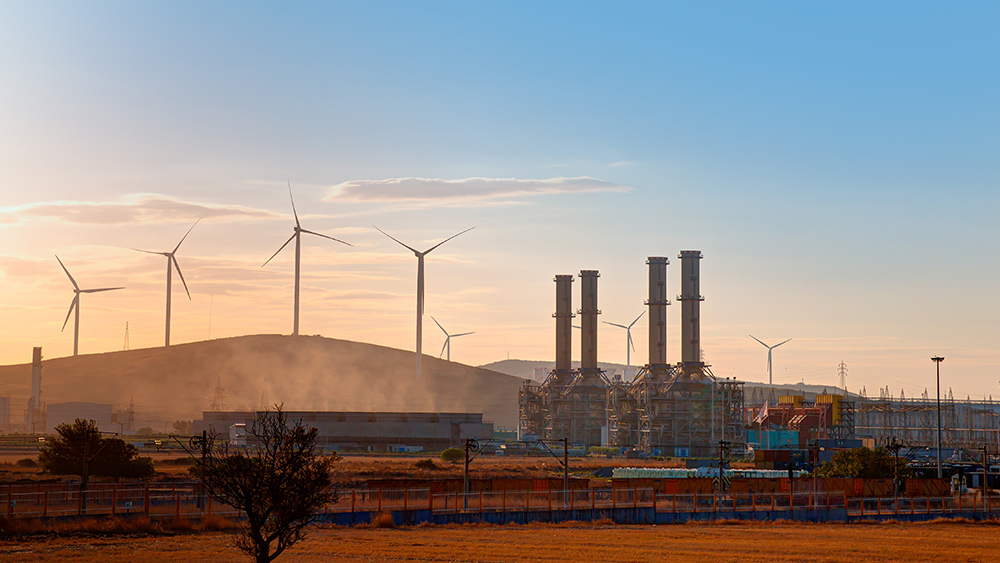Big Oil returns to core strengths, retreats from green energy investments as climate agenda loses steam
01/02/2025 / By Willow Tohi

- In 2024, European energy giants like BP, Shell and Equinor scaled back investments in renewable energy projects, refocusing on oil and gas due to profitability and market demands.
- High oil and gas prices, driven by geopolitical disruptions like the Ukraine war, made fossil fuels more profitable, while renewables faced financial challenges like inflation and supply chain issues.
- The article argues that fossil fuels are not the primary driver of climate change, emphasizing the complexity of climate systems and the benefits of affordable, reliable energy for global prosperity.
- The election of Donald Trump and his pro-fossil fuel policies, including deregulation and promoting LNG exports, have bolstered the industry and aligned with global energy demands.
- The article advocates for a pragmatic approach that integrates fossil fuels with environmental stewardship, highlighting technologies like carbon capture as evidence of the industry’s commitment to sustainability.
In a world increasingly dominated by climate alarmism and calls for a rapid transition to renewable energy, the recent strategic pivot by major oil and gas companies serves as a stark reminder of the indispensable role fossil fuels play in modern society. Contrary to the narrative that oil, gas and coal are driving catastrophic global warming, the evidence suggests that these energy sources remain not only economically vital but also environmentally sustainable when managed responsibly.
In 2024, European energy giants like BP, Shell and Equinor significantly scaled back their investments in wind and solar projects, refocusing on their core competencies in oil and gas. This shift, driven by investor demand and geopolitical realities, underscores the limitations of renewable energy and reaffirms the necessity of fossil fuels in meeting global energy needs.
The economic realities of energy
The decision by these companies to prioritize oil and gas over renewables is not a rejection of environmental stewardship but a pragmatic response to market forces. As Rohan Bowater, an analyst at Accela Research, noted, geopolitical disruptions like Russia’s invasion of Ukraine have created a high-price environment for oil and gas, making these investments more profitable than ever. Meanwhile, renewable energy projects have struggled with inflation, supply chain bottlenecks and lower returns, leading to significant financial losses for companies that ventured too far from their expertise.
For example, BP, once a champion of renewable energy, announced it would spin off most of its offshore wind projects into a joint venture, while Shell exited power markets in Europe and China. These moves reflect a broader trend: Investors are rewarding companies that focus on their core strengths rather than chasing the elusive promise of renewables.
The myth of fossil fuel-driven climate change
Despite the relentless rhetoric linking fossil fuels to global warming, the scientific evidence does not support the claim that these energy sources are the primary driver of climate change. Climate is a complex system influenced by a multitude of factors, including natural variability, solar activity and oceanic cycles. The notion that human emissions of carbon dioxide are solely responsible for rising global temperatures is an oversimplification that ignores the broader context of Earth’s climate history.
Moreover, the benefits of fossil fuels – affordable, reliable energy that powers economies and lifts billions out of poverty – far outweigh the speculative risks associated with climate change. As Norway’s Equinor aptly stated, “affordable, reliable energy and environmental stewardship are not mutually exclusive.”
The role of policy and leadership
The resurgence of fossil fuels is also a reflection of shifting political landscapes. The election of Donald Trump, a vocal critic of climate alarmism, has reinvigorated the oil and gas industry. Trump’s administration is expected to roll back restrictive regulations, boost domestic energy production and prioritize energy independence. This approach aligns with the realities of global energy demand, particularly in developing nations like China, where economic growth continues to drive oil consumption.
Trump’s energy policies, including the promotion of liquefied natural gas (LNG) as “freedom gas,” highlight the strategic importance of fossil fuels in ensuring national security and global stability. By removing barriers to production and exports, the U.S. can strengthen its position as a global energy leader while providing affordable energy to its citizens.
A balanced energy future
The retreat from renewables by major energy companies is not a rejection of innovation but a recognition of the need for a balanced energy strategy. Fossil fuels remain the backbone of the global economy, and their responsible use is compatible with environmental goals. Technologies like carbon capture and methane leak prevention demonstrate that the industry is committed to reducing emissions without sacrificing energy security.
As the world navigates the complexities of energy policy, it is essential to reject the false dichotomy between fossil fuels and environmental sustainability. The recent actions of BP, Shell and Equinor serve as a powerful reminder that oil, gas and coal are not the villains of climate change but the foundation of modern prosperity.
In the face of climate alarmism, the energy industry’s return to its core strengths is a victory for common sense, economic growth and global stability. Fossil fuels are here to stay—and that’s a good thing.
Sources include:
Submit a correction >>
Tagged Under:
affordable energy, awakening, big government, climate, Donald Trump, economic riot, electricity, energy security, environ, fossil fuels, fuel supply, global energy, green energy, green living, Green New Deal, green tyranny, new energy report, power, progress, reduced emissions, reduced emssions, Trump, White House
This article may contain statements that reflect the opinion of the author
RECENT NEWS & ARTICLES
COPYRIGHT © 2017 GREEN LIVING NEWS




















